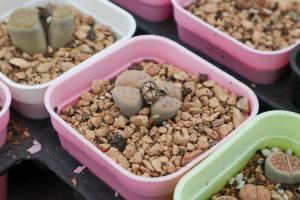When to Plant Fruit Trees in GA
Growing fruit trees in Georgia can be a rewarding experience. However, planting them at the right time is crucial for their successful growth. In this article, we will discuss when the best time is to plant fruit trees in Georgia.
Spring Planting
Spring is generally the best time to plant fruit trees in Georgia. The ground temperature during this season is warmer, which encourages the trees to root quicker than in other seasons. Planting in the spring also allows the trees to establish themselves before the summer heat sets in, which can be harsh in Georgia.
It's important to time your planting according to the type of fruit tree you want to grow. Depending on the tree's species, it may require a longer or shorter growing season, which can affect the timing of the planting.
Fall Planting
Fall planting is also an option in Georgia, but it's not as ideal as planting in the spring. Fall planting can be challenging because the trees need to establish their roots before the winter season. If the roots can't develop well enough before the onset of winter, the tree can die. However, fall planting can be a good option for those who missed out on spring planting, or for those looking to catch end-of-season deals.
Choosing the Right Location
The location of a fruit tree is essential for its growth and development. The spot should receive at least six hours of full sun each day, and it should be well-drained to prevent standing water. Avoid planting fruit trees near structures or other trees that can shade them or obstruct their growth.
It's also important to consider the soil type when planting fruit trees. Georgia is known for its clay soils, which can retain water and become compacted, making it difficult for tree roots to reach nutrients. It's best to plant fruit trees in loamy soils or to amend the soil with compost or other organic matter to improve drainage.
Prepping the Soil
Before planting the fruit trees, you should prepare the soil by loosening it to a depth of at least 18 inches. This will allow the roots to penetrate the soil easier. Adding compost, manure, and other organic matter to the soil will provide nutrients that the tree needs to grow.
It's also important to conduct a soil test to determine the pH levels and any nutrient deficiencies that may exist. Adjusting the pH with lime or sulfur, and adding fertilizers to address any nutrient deficiencies, will help the tree grow faster and produce better fruit.
Conclusion
Planting a fruit tree is a long-term investment, and the right time to plant is crucial for its successful growth. Planting in the spring is best, but fall planting is also an option. Make sure to choose the right location and prepare the soil for your fruit trees to thrive. With proper care and maintenance, your fruit trees will provide you with fresh, delicious fruit for years to come.

 how many times do yo...
how many times do yo... how many planted tre...
how many planted tre... how many pine trees ...
how many pine trees ... how many pecan trees...
how many pecan trees... how many plants comp...
how many plants comp... how many plants can ...
how many plants can ... how many plants and ...
how many plants and ... how many pepper plan...
how many pepper plan...





























